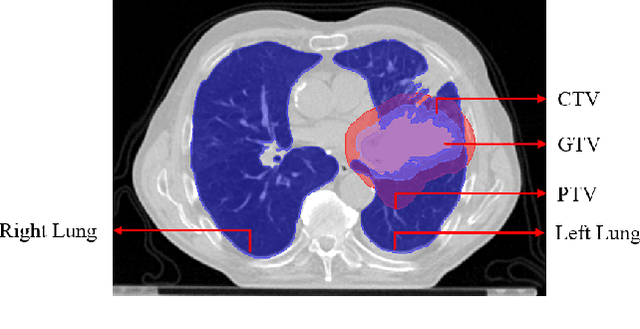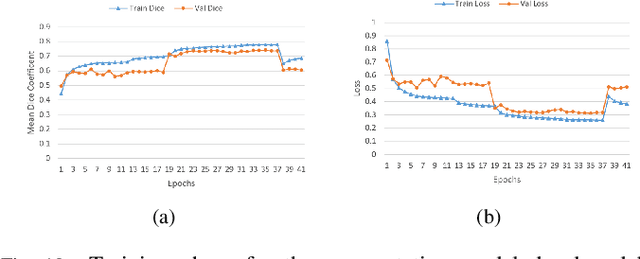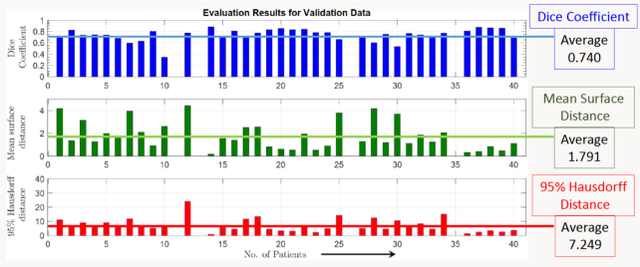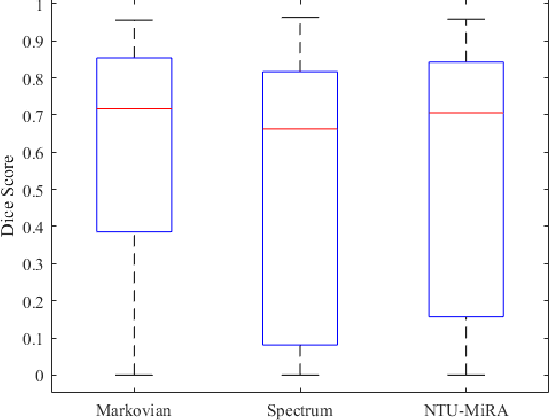Jhih-Yuan Lin
Lung-Originated Tumor Segmentation from Computed Tomography Scan (LOTUS) Benchmark
Jan 03, 2022



Abstract:Lung cancer is one of the deadliest cancers, and in part its effective diagnosis and treatment depend on the accurate delineation of the tumor. Human-centered segmentation, which is currently the most common approach, is subject to inter-observer variability, and is also time-consuming, considering the fact that only experts are capable of providing annotations. Automatic and semi-automatic tumor segmentation methods have recently shown promising results. However, as different researchers have validated their algorithms using various datasets and performance metrics, reliably evaluating these methods is still an open challenge. The goal of the Lung-Originated Tumor Segmentation from Computed Tomography Scan (LOTUS) Benchmark created through 2018 IEEE Video and Image Processing (VIP) Cup competition, is to provide a unique dataset and pre-defined metrics, so that different researchers can develop and evaluate their methods in a unified fashion. The 2018 VIP Cup started with a global engagement from 42 countries to access the competition data. At the registration stage, there were 129 members clustered into 28 teams from 10 countries, out of which 9 teams made it to the final stage and 6 teams successfully completed all the required tasks. In a nutshell, all the algorithms proposed during the competition, are based on deep learning models combined with a false positive reduction technique. Methods developed by the three finalists show promising results in tumor segmentation, however, more effort should be put into reducing the false positive rate. This competition manuscript presents an overview of the VIP-Cup challenge, along with the proposed algorithms and results.
Efficient and Phase-aware Video Super-resolution for Cardiac MRI
May 29, 2020



Abstract:Cardiac Magnetic Resonance Imaging (CMR) is widely used since it can illustrate the structure and function of heart in a non-invasive and painless way. However, it is time-consuming and high-cost to acquire the high-quality scans due to the hardware limitation. To this end, we propose a novel end-to-end trainable network to solve CMR video super-resolution problem without the hardware upgrade and the scanning protocol modifications. We incorporate the cardiac knowledge into our model to assist in utilizing the temporal information. Specifically, we formulate the cardiac knowledge as the periodic function, which is tailored to meet the cyclic characteristic of CMR. In addition, the proposed residual of residual learning scheme facilitates the network to learn the LR-HR mapping in a progressive refinement fashion. This mechanism enables the network to have the adaptive capability by adjusting refinement iterations depending on the difficulty of the task. Extensive experimental results on large-scale datasets demonstrate the superiority of the proposed method compared with numerous state-of-the-art methods.
 Add to Chrome
Add to Chrome Add to Firefox
Add to Firefox Add to Edge
Add to Edge